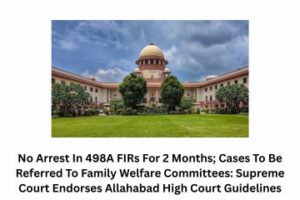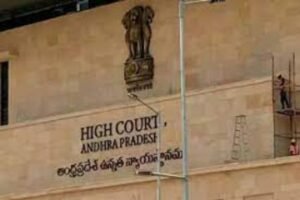Supreme Court Has Repeatedly Said 10 Years Experience In Law Is Sufficient For Appointment As Judicial Member In Tribunals
Case: Vijaykumar Bhima Dighe v. Union of India and others
Coram: SUNIL B. SHUKRE AND ANIL S.KILOR, JJ.
Case No: PUBLIC INTEREST LITIGATION NO. 11 OF 2021
Court Observation: “Thus, it is clear that the Hon’ble Supreme Court of India, has repeatedly held that to have 10 years of experience in law and in other specialized fields as prescribed and stipulated under the statute, is sufficient for appointment as a judicial member in the Tribunal. The Rules 3(2)(b) and 4(2)(c) of the Rules of 2020 to the extend prescribing a minimum experience of not less than 20 years for appointment of President and Members of State Commission and experience of not less than 15 years for appointment of Presidents and Members of District Commission under the Act of 2019, is an attempt to circumvent the directions issued in MBA-2020 and UPCPBA. Hence, they are arbitrary, illegal and violates the principle of equality before the law.”
“Moreover, the decision of the Selection Committee to hold the written test, supports the case of the petitioner that looking at the judicial functions needed to be performed by the President and Members of District and State Commissions, the criteria for selection and appointment shall be applied as nearly as possible applicable to the judges in mainstream judiciary, exercising the similar powers,”
[doc id=9637]
Previous Posts
Consumer Complaints Alleging Deficiency In Service Related To Transfer Of Title Of Immovable Property Not Maintainable: Supreme Court Download Judgement




